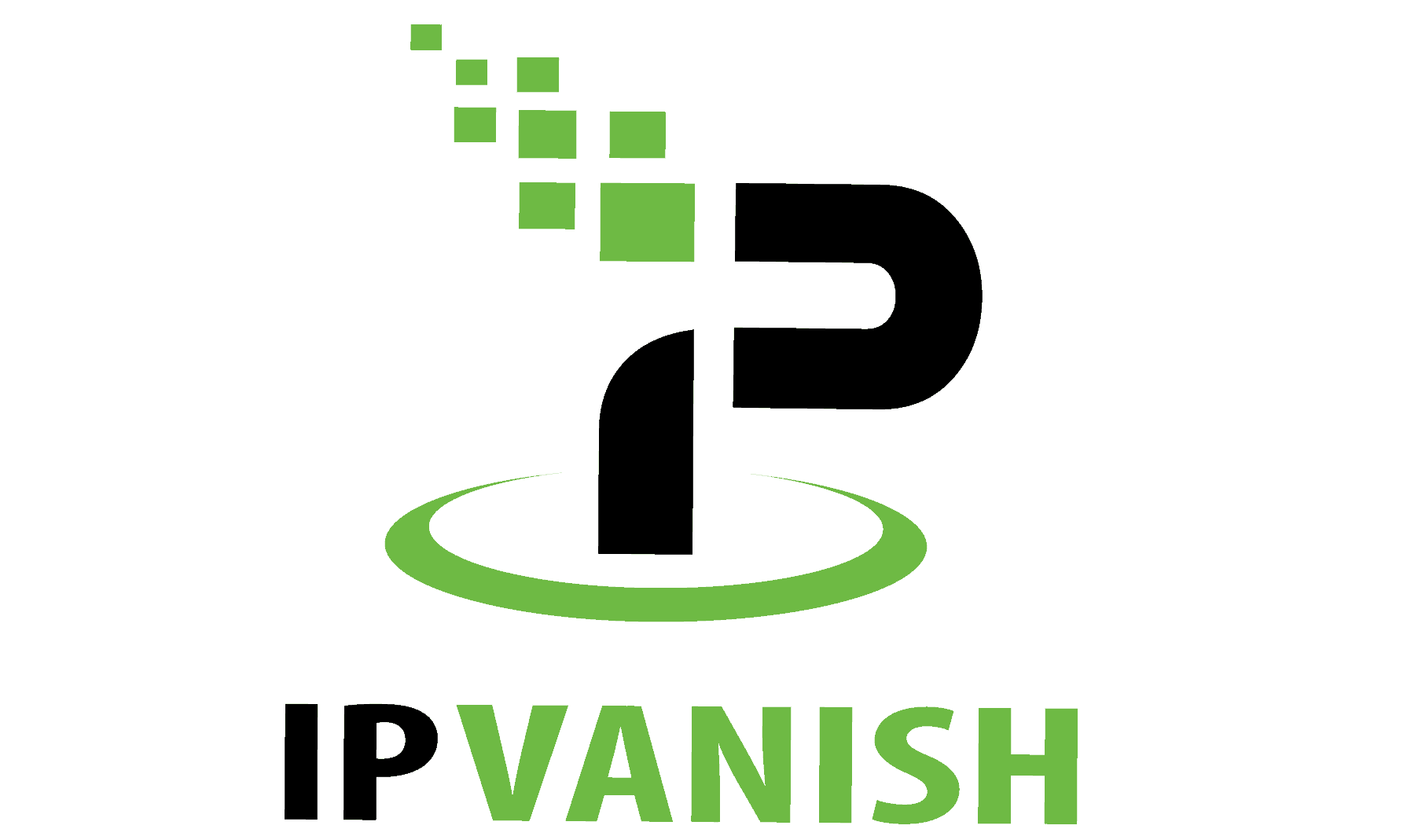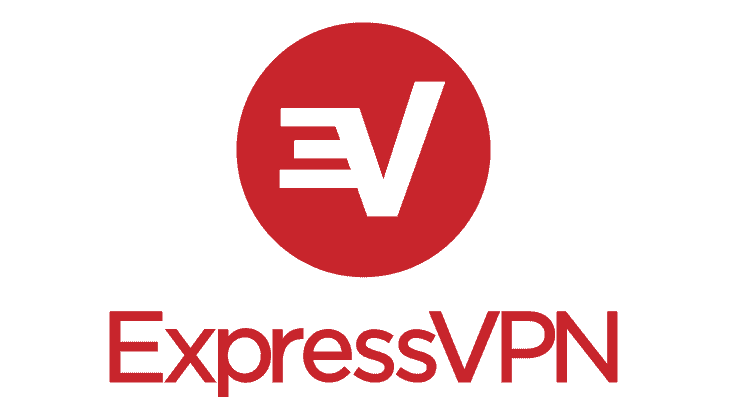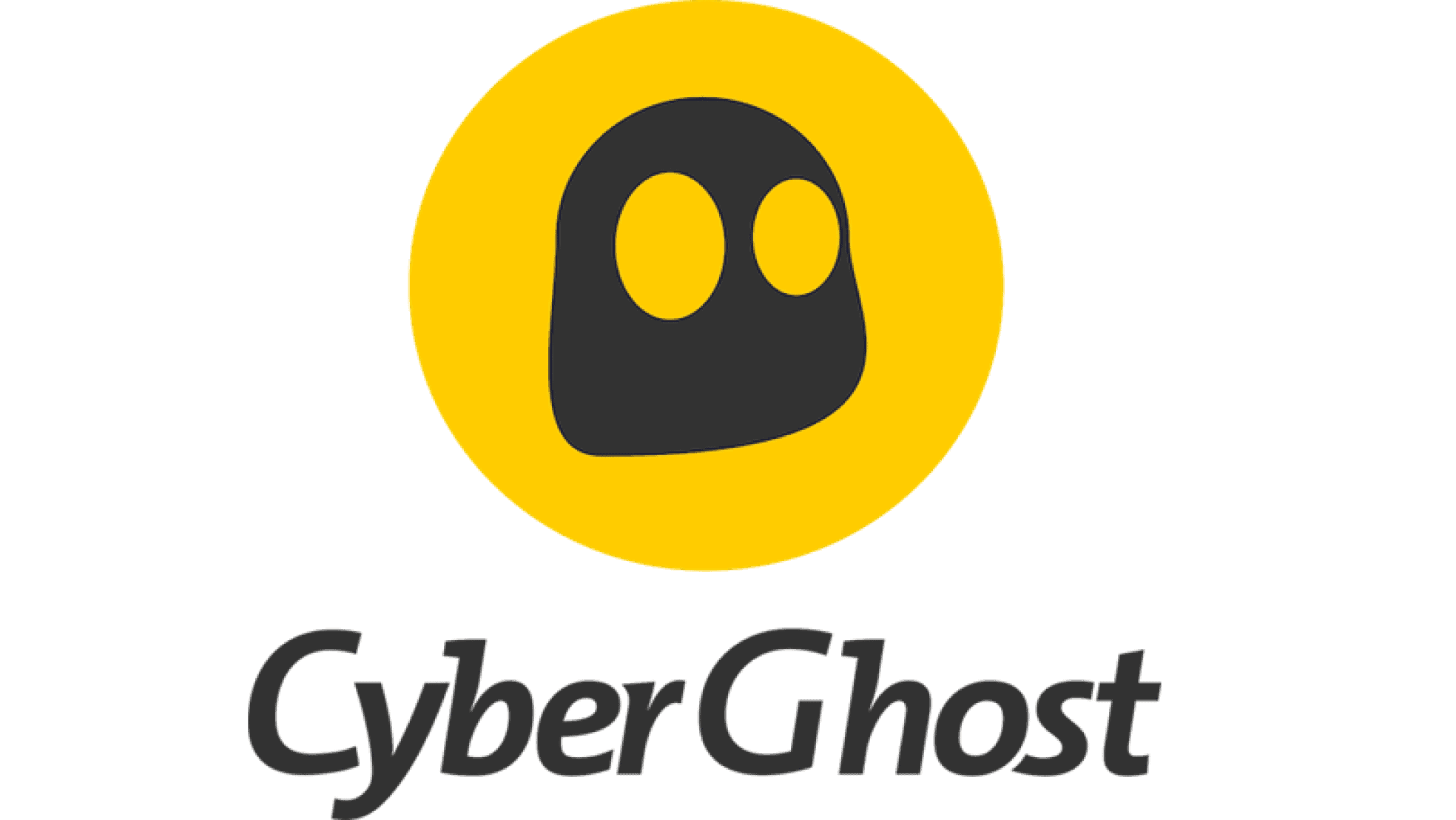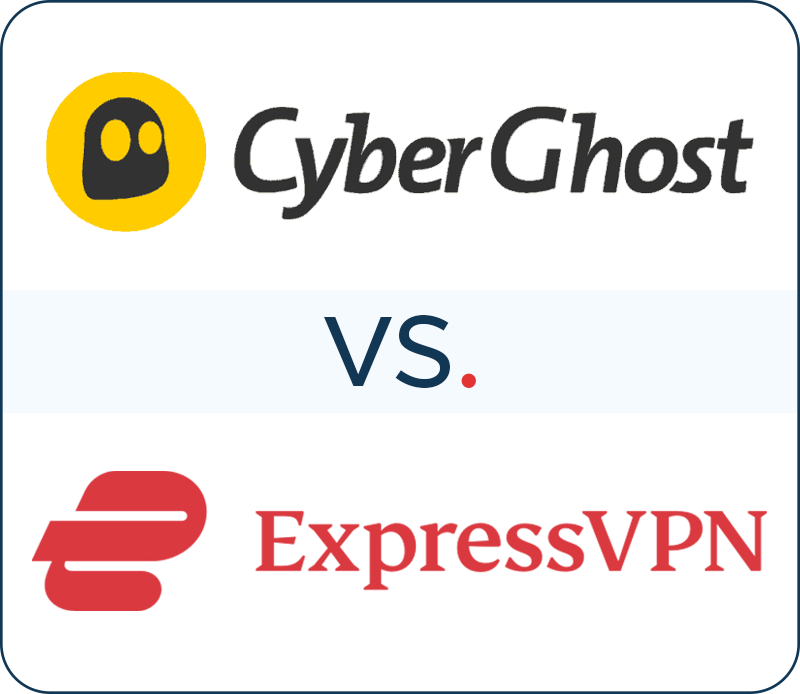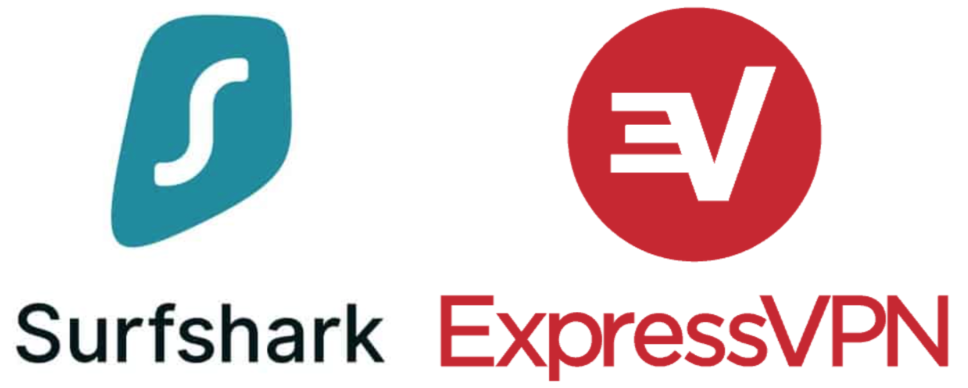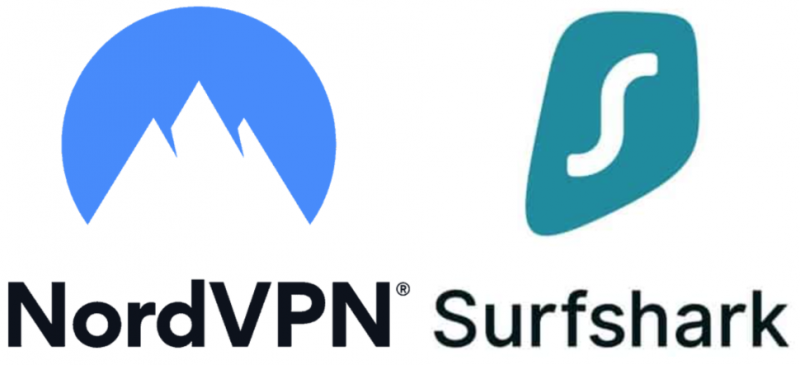Privacy Canada is community-supported. We may earn a commission when make a purchase through one of our links. Learn more.
The Best VPNs for Canada in 2022
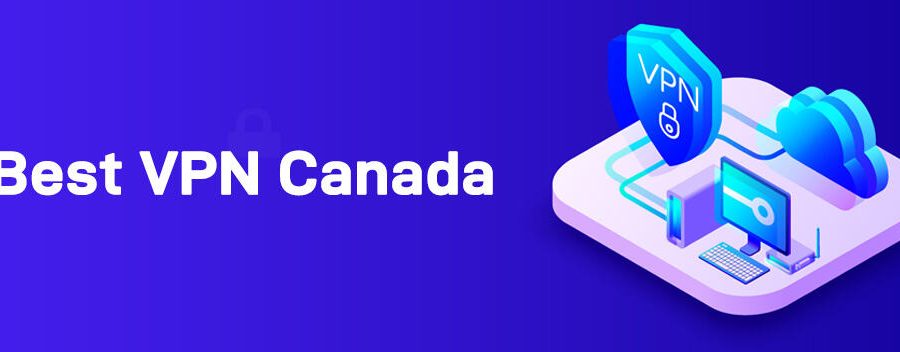
Aren’t VPNs obscure tools used by corporations, conspiracy theorists, criminals, and tech-savvy hackers? Not anymore.
With privacy scandals, data leaks, geo-restrictions, and censoring making headlines and impacting lives every day, VPNs have risen to prominence as must-have services.
Every piece of information you send over the internet, from pictures of your cat to your tax return, can potentially be intercepted.
Thankfully, there is a simple way to dramatically reduce your vulnerability to cybercrime and access what you want to access: Use a best VPN in Canada.
Best VPN in Canada Reviews And Speed Tests 2022
Our list is based on cold, hard facts. The best kind of facts. We tested over 15 different VPN services from major Canadian cities such as Toronto, Vancouver, Ottawa, Calgary, Quebec, and others to get the different data. We then compiled our data and used it to rank the top 6 Canadian VPNs overall.
| VPN | Basic Price | Encryption | Our Rating |
|---|---|---|---|
| NordVPN | $2.99/mo | AES-256 | 5 ★★★★★ |
| Surfshark | $2.49/mo | AES-256 | 5 ★★★★★ |
| ExpressVPN | $8.32/mo | AES-256 | 4 ★★★★★ |
Our mission is to help find the absolute best VPN in Canada. Therefore, we looked at six equally important factors:
☑️ Speed – There is no need to sacrifice speed for security.
☑️ Data leakage – Defeats the purpose of using a VPN.
☑️ Privacy and security features – The more the merrier.
☑️ Logging policies – If they keep it they’re probably selling it.
☑️ Customer support – Issue resolution and education are key.
☑️ Cost – A good VPN shouldn’t be cost-prohibitive.
☑️ Torrent and Netflix availability – The real concern here is whether or not we can watch The Office in every country we go to.
We look at each and every one of these factors in all of our VPN reviews. You also might want to check out our testing process.
Best VPNs in Canada for Online Privacy and Security
There are 5 top-level VPN providers in Canada in 2022. (French: Meilleur VPN)
These are the Canada VPNs that offer fast, secure connections, let you use Netflix and torrents without restriction, and offer good customer support.
Let’s see how they stack up.
#1. NordVPN – Best of Everything (Black Friday Pricing! Only $2.99/month)
- 30 Day Money Back
- Most Secure (double encryption)
- Over 5000 Servers
- No logging
- 24/7 support
- Compatible all devices
- Netflix Ready
- Fast connection
Pros
- Ease-of-use
- Double data encryption
- More than 5,000 servers
- Specialized servers
- Connect six devices
- P2P is allows
- Browser apps
- Works with Netflix
Cons
- Expensive for month-to-month users
- No discounts on short term signups
Technicals
Logging: None
Protocol: OpenVPN IPSec, PPTP, and L2TP
Speed: Average
Servers: 5000+ Servers
Jurisdiction: Panama
Compatibility: Windows, MacOS, Android, iOS, Linux
Speed and Security
One of the most impressive things about NordVPN is its double data protection.
This means that the service will relay your data through two servers to encrypt it twice before it reaches whatever you’re trying to access. An extra step that makes sure your information is as secure as possible is always a good thing.
We have never tested NordVPN to have any leaks in their system so you can rest assured your real IP address will never be exposed.
Panama jurisdiction also ensures that NordVPN’s no-logging policy actually stays securely a no-logging policy. There will never be a case where they will need to share data like in other countries such as Canada and the US.
Support
I’m happy to report that NordVPN does actually have live chat and the customer support agents actually respond. They can also be reached through email if that is more your type of thing.
We found that the customer support team can help you with any issue you might have but with how easy their set-up is along with the ease-of-use of their interface you probably won’t have too many questions.
If you do have any quick questions the NordVPN website also has a lot of how-to guides and FAQ sections that can help you get through any problems.
Cost
Coming with a 30-day money-back guarantee is something that can put your mind at ease when you’re trying out a VPN. With a two-year plan, you will only be charged at $2.99 per month but if you decide you don’t want to commit to that the NordVPN plans can be costly. A great thing is that you can get the price even lower through NordVPN Coupons.
A one-month plan comes in at $11.99. If you decide you can commit to a year then you would be looking at $4.49 per month and at two years the price goes down to just $2.99 per month.
It doesn’t make sense to do anything other than the three-year plan. The monthly plan is silly as you can just buy any other plan and use a 30-day money-back guarantee.
The one-year and two-year plans are almost as much money as the three-year plan. If you can commit to two years you probably can commit to three.
Compatibility
One of the best qualities of NordVPN is how easy it is to connect to each device. Apps on every operating system make it a breeze to manage your privacy.
Everything Else
NordVPN is a secure and safe VPN. As the VPN market continues to grow NordVPN seems dead set on having the most servers making it almost a foregone conclusion that there will never be a time when you won’t have an ideal server to use.
Being able to access Netflix and streaming services is also a huge plus and paired with their price it is hard to go wrong with NordVPN when it comes to the best VPNs.
Find out more information in our NordVPN review.
#2. Surfshark: Premium Features Without the Premium ($2.49)
- 30 Day Money Back
- Torrenting/P2P Allowed
- 800+ Servers
- Secure VPN Protocols
- Zero logging policy
- Compatible with multiple OS
- Netflix Ready
- Fast connection
Pros
- The best protocol for streaming
- Able to torrent and P2P share
- No logs
- Unlimited everything
- Located in the British Virgin Islands
- Best security and encryption available
- Kill-switch
- Accepts crypto
- 30-day money-back guarantee
- DNS, IPv6, and WebRTC leak protection
- Great pricing
Cons
- Speeds can vary from server to server
- Newer company so server base is still growing
Technicals
Logging: None
Protocol: OpenVPN, IPSec, and IKEv2
Speed: Fast
Servers: 800+ in 50+ Countries
Jurisdiction: British Virgin Islands
Compatibility: Windows, macOS, Android, Apple, Linux, FireTV, AppleTV, Xbox, Playstation, Routers
The second best VPN in Canada, based on my tests, is Surfshark. When it comes to a VPN, we want total and complete privacy for our personal data, and we want it fast. Like we mentioned earlier – speed and security are the most important aspects of a VPN.
Speed and Security
Admittedly, Surfsharks speeds do vary from server to server. This isn’t all that abnormal in the VPN world. It’s important to know that most of the servers are quite fast and don’t see much of a dip in terms of your original internet speed.
Security is what Surfshark does best. The VPN never logs your activity and has the best encryption protocol available. If you aren’t familiar with the different encryption options available today, just know that Surfshark uses the best possible option.
If you are interested in knowing the details, Surfshark uses an IPv6 protocol, which is much better than the IPv4 protocol other companies are using.
The company also supports OpenVPN and IKEv2 protocols. On top of that, Surfshark uses 256-bit AES encryption with a 2048-bit DHE-RSA key exchange and a SHA512 authentication hash. They also have WebRTC leak and DNS protection.
Support
Live chat, which is offered in various languages, for those that need help. Surfshark also has instant email support, but most people seem to prefer to live chat these days.
You don’t have to be a technology wizard to use Surfshark. If you do have questions, chances are that you will find answers on their knowledge base, which is quite good.
If you do have any quick questions, the NordVPN website also has a lot of how-to guides and FAQ sections that can help you get through any problems.
Cost
This is my favorite thing about Surfshark. One-month plans are rather expensive at $12.95 per month, and yearly plans are reasonable at $4.98 per month.
Where Surfshark really excels is its 24-month, long-term plans. You can use this VPN for only $2.49 per month, and that includes everything they have available. It’s a steal, a deal, a bargain, whatever you want to call it.
Compatibility
Since Surfshark uses the IPv6 protocol, it’s extremely easy to access Netflix and other streaming devices. The amount of IP addresses that Netflix will recognize is much lower if Surfshark used the IPv4 protocol.
The VPN also allows you to use Kodi and torrent. Some VPNs don’t allow P2P sharing but there is no issue with Surfshark.
Everything Else
Something about backing the new company that seems ambitious and ready to take over the market is exciting. Since Surfshark is new, the reputation the company has already built is quite impressive.
If you read through additional VPN reviews you can see that SurfShark is a new competitor in the VPN category but has maintained high standards from the onset.
It seems like they add a new server every day and it looks like they are interested in excelling in every category a VPN company can excel in.
Learn more about this newcomer VPN service in our Surfshark review.
#3. Express VPN: Fastest VPN Choice ($6.67/month)
- Extremely Fast
- Secure (No Leaks)
- Over 3000 Servers
- No logging
- 24/7 support
- Compatible all devices
- 30 Day Money Back
Pros
- Fast servers
- Supports all devices
- Allows unblocked netflix viewing
- Ability to torrent and P2P
- Easy to use
- 30-day money back guarantee
- Split tunneling
- Streaming Capable
Cons
- Pricing is higher than other options
- Limits simultaneous connections to 3
Technicals
Logging: None
Protocol: OpenVPN, IPSec, and IKEv2
Speed: Fast
Servers: 3000+ in 94 Countries
Jurisdiction: British Virgin Islands
Compatibility: Windows, macOS, Android, Apple, and Linux
Another great provider is Express VPN. I would consider Express the “premium” VPN on this list. In terms of security protection and privacy standards, it’s identical to both Nord and Surfshark.
One noticeable difference between the three is speed: ExpressVPN tested faster than both Nord and Surfshark from nearly all locations I tried, throughout Canada as well as in my travels to China, Europe, and parts of Southeast Asia.
Truth be told, nearly all top VPN providers today work very well. So, as long as they all protect their users’ privacy the same the only major differences are speed and price. If you’re looking for a little extra oomph, look no farther than ExpressVPN.
Speed and Security
Making sure the VPN you are using does not legally reside in a country that can force the company to share data goes a long way in protecting yourself. Luckily, the British Virgin Islands are a great place for a VPN to set up legally as they don’t have to share data.
Some other VPNs provide just as good a service, but you’re out of luck unless you live in a select few locations.
Express VPN covers 94 countries, so you’re going to have to wander far, FAR off the beaten path before you run into access issues. Chances are, if you are somewhere you can’t use Express VPN, there probably won’t be internet at all.
Support
Rock-solid customer support is also a big deal when it comes to a VPN. Express VPN provided the best live chat of any service we tested. The hardest part, for us, was figuring out a believable fake problem to evaluate the response.
Cost
How much does it cost? The basic options are to pay either by the month, every six months, or annually.
Yearly billing is cheaper, reducing your monthly average to less than $9 while going with a monthly bill runs to about $13. A 30-day money-back guarantee comes with any plan you choose.
Compatibility
Beyond the extra security that using a VPN offers, many people choose to use a VPN to access Netflix and Kodi, and also to download torrents. Express VPN performs very well in this respect: you can use it to watch American Netflix, and P2P downloads are quick and reliable.
Everything Else
There are a final few tidbits that helped push Express VPN into our top spot.
One is that the dashboard offers a speed test front-and-center. Not every company is confident enough in their equipment to do that. Secondly, unlike many other similar services, this VPN absolutely does not log your activity.
In short, we have to agree with the more than 10 million people around the world using Express VPN: at the moment, it is the best choice for Canadian VPNs.
More information can be found on our ExpressVPN review.
#4. Perfect Privacy – Great for Multi Connections/Speed ($9.99/month)
- Zero Logging Policy
- Improved Speed
- Multi Hop VPN Chains
- Trackstop Filter
- Advanced Malware/Virus Detection
- Compatible on most devices
- Unlimited Connections
Pros
- Feature rich
- Unlimited number of connections and devices
- Full IPv6 support
- Switzerland Jurisdiction
- Able to torrent
- 30-day money back guarantee
Cons
- Advanced features are overkill for a lot of users
- High price tag
Technicals
Logging: None
Protocol: OpenVPN, IPSec, and SSH
Speed: Above-Average
Servers: 54 servers in 24 countries
Jurisdiction: Switzerland
Compatibility: Windows, macOS, iOS, Android, Linux, and IPTV
Next on our list comes Perfect Privacy. The service might be overkill for some people in terms of features and the number of connections provided. If you’re looking for that type of premium service, then Perfect Privacy makes a lot of sense.
Speed and Security
Privacy is pretty perfect at Perfect Privacy. With zero data storing and industry-standard encryption and protocols, you can rest assured that your information will be safe.
As far as speeds go, we found that they were above average. This is a sacrifice from extremely fast speeds that will have to be made to have unlimited connections and advanced features.
Support
Customer Support for Perfect Privacy is okay. They have an extensive FAQ section as well as active forums.
The problem is there is no live chat available – you can only contact the company through email. On average we found that we received a response within the first twelve hours of sending a message, which is quick for the industry.
Cost
As mentioned before, the cost of Perfect Privacy is higher than most VPN plans. There is only one tier of pricing since everything is unlimited. You can pay for one month at a time at the price tag of $12.99 per month.
If paying for a year in advance, the price tag drops to $9.99 per month, and for two years it drops to $8.95 per month.
Compatibility
Connecting to pretty much every device is possible. However, connecting to them is kind of complicated. They only have ready-made apps for Windows and Linux devices. With the price tag and the other easy options out there, we definitely think there is a little bit too much heavy lifting in this regard.
Everything Else
Advanced anonymity features, the unlimited number of device connects, and unlimited use gives Perfect Privacy high ratings from us. We have no concerns about security from this VPN, and the wide range of features they offer are great.
The problems arise when it comes to speed, price, and device compatibility. At the current price tag, these should be improved.
#5. IPVanish – Great Service but US Based ($4.87/month)
- No Logging
- 10 Connections Allowed
- Secure DNS
- No 3rd Party Proxies
- 24/7 support
- Compatible all devices
- Advanced Encryption
Pros
- Above Average download speed
- Works with streaming services
- Allows torrenting
- Supports all devices
- 10 connections at once
- Strong Encryption
Cons
- US Based
- Cost
- Money-back guarantee
Technicals
Logging: None (allegedly)
Protocol: OpenVPN, SOCKS5
Speed: Fast
Servers: 1,100+ servers in more than 60 countries
Jurisdiction: United States
Compatibility: Windows, macOS, iOS, Android, and Amazon
Our fourth pick has been providing VPN services since before it was cool back in 1999.
IPVanish is solid all across the board. It doesn’t come across as the best at one thing, but there aren’t too many things wrong with this VPN service.
Speed and Security
IPVanish has been in the news for handing over customer information to the United States Department of Homeland Security. They have changed ownership, and the new owners do claim that they keep no logs.
It is hard to trust a VPN company that is based in the US because at any time a government agency can force a company to hand over customer data.
With IPvanish’s high number of servers and country location, there are no issues with the speed provided and are in general above average.
Support
A 24/7 live chat is available to those who need it.
IPVanish also has a full support center with a knowledge base, system status, FAQ bank, and email option. Finding your issue is easy with their category-based system.
Cost
Pricing with IPVanish is high when compared to other hosting services. On top of this, they only have a 7-day money-back guarantee, which is much lower than the industry standard 30-day money-back guarantee.
The lowest pricing tier locks you in for a year at $6.49 per month. The other options come in at three months and one month. These will run you $8.99 per month and $10.00 per month respectively.
Compatibility
Everything about IPVanish is good, but it won’t wow you. It’s the same with their compatibility. While they work with all the major operating systems their app is just kind of meh. It works but it’s basic.
Everything Else
The five device connection limit and the fact that only some servers can unblock Netflix are both right where the rest of IPVanish is. Right in the average category. Everything works but nothing is going to wow you.
We didn’t find many issues when testing out IPVanish, but there are a handful of negative customer reviews out there.
For more information, feel free to read our full review on IPVanish.
#6. CyberGhost – Ok for Basic Functions ($2.75/month)
- Netflix ready
- Live Chat Support
- IP Hiding
- Some Logging (Be Careful)
- 3,745+ Servers (3rd Party)
- Compatible all devices
Pros
- Pricing
- Easy to use
- Works with Netflix
- No logging
- Torrenting is allowed
- Compatibility
- Best money-back guarantee
Cons
- Average speeds
- Customer support is slow
Technicals
Logging: None
Protocol: OpenVPN, L2TP, IPSec, and PPTP
Speed: Average
Servers: Almost 4,000 in 60 countries
Jurisdiction: Romania
Compatibility: Windows, macOS, iOS, Android, FireTV, Android TV, and Linux
With almost 4,000 servers, CyberGhost is a great affordable option. It allows users to do every basic function with a VPN without breaking the bank.
CyberGhost is an option that will wow you with connecting any device possible and will come up solid in every other regard.
Speed and Security
Speeds are on the average side for CyberGhost and won’t wow anyone. With the low price and the ability to connect to devices, such as FireTV, easily, this might be a trade-off that is worth it to a lot of people.
As far as logging, they do not keep any of your information. Besides that, there are no issues with data leaking or any of the other security offenders out there.
Support
The customer support does not have a sterling reputation for getting back to you quickly. The service is easy to use and you shouldn’t have to contact the customer support team unless you have a technical issue.
They do have an extensive knowledge base with step-by-step instructions as well if you get into any kind of trouble.
Cost
Four pricing tiers come with CyberGhost. Out of all of our options on this list, CyberGhost is the cheapest with a $2.75 per month rate when three years of hosting is purchased. Pairing this rate with the longest money-back guarantee on the list makes this VPN service the most risk-free to try.
Other rates come in at $3.69 per month if two years are purchased, $5.99 per month if one year is purchased, $12.99 per month if one month is purchased.
Compatibility
CyberGhost has apps for all of your needs. Downloading them takes seconds and it’s very easy to implement on your router. This is where CyberGhost sets itself apart from the competition along with their price.
You can also connect to up to seven devices which is on the high end in the industry.
Everything Else
With easy compatibility and low pricing, CyberGhost is an intriguing option for people in search of a VPN.
They may not set themselves apart in every category but they are at least average across the board with a few high-end features.
More information can be found on our CyberGhost review.
Best VPN for Canada FAQs
What is the main purpose of a VPN?
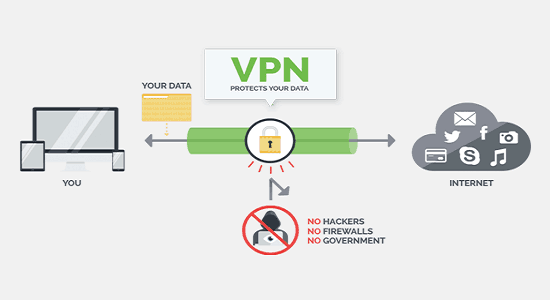
VPNs are designed to protect you against activity that might risk your cybersecurity. What that means is you need a VPN that is as secure as it gets. If your VPN isn’t secure you might as well not use one.
Almost at the same level importance will be how fast your VPN is. Yes, we want to be secure online. BUT – if that comes at the cost of turning your internet speed into a race between glaciers then why even bother trying to access any information? It’s going to take forever.
The number of VPN companies available number in the hundreds now. This can be overwhelming but we cut through all of the research for you.
Should I use a VPN when working from home?
This is far and away the most commonly asked question we’ve gotten from readers – and clients – in 2022. The answer is a definitive yes. A virtual private network is your first line of defense when working from home, and particularly when connected to public Wifi.
In partnership with the VPN providers on our list above, we conducted a 3-week survey of VPN usage in Canada at the start of COVID lockdowns (late March to mid April 2020).
We found that, across the board VPN usage in Canada grew more than 243.1% during that time, as determined by the number of downloads (both desktop and mobile).
As the effects of the pandemic persist, we anticipate that VPNs will become a de-facto security tool for remote workers in the “new normal.”
VPN Canada Buying Guide – 8 Factors
Just like any other service, the best thing you can do is figure out what is most important to you? Obviously, this process can come back with a different answer for any one person.
One person might want the best VPN for Netflix. Another person might want the VPN best for beginners. It really is up to the individual.
There are many factors that can be taken into account, here is a handful of them:
1. Speed – This is measured in megabits per second (Mbps). This is how fast you can download something – the higher the number, the faster your connection.
2. Leak Testing – An IP leak is when the user’s real IP address is being shown in a network unknowingly while using a VPN. This is bad as you want to hide your IP address at all times.
A DNS leak is a problem with network configuration which results in sending DNS queries over insecure links rather than using the VPN connection. A DNS query is when a user needed to translate the name of a server to an IP address.
Basically, leak testing makes sure your real identity is never given up.
3. Jurisdiction – The actual location that the VPN is based has a huge impact on user privacy. There are a handful of countries that can force a company to hand over consumer data. Making sure the VPN you are using does not legally reside in one of those countries goes a long way in protecting yourself.
The worst offenders are countries in the Five Eyes surveillance alliance. These include Australia, Canada, New Zealand, United Kingdom, and United States.
4. Server Network – If the VPN does not have a high number of servers or a server location near you there is a high chance you will experience slow speeds.
5. Features – There are many important features such as PPTP, OpenVPN, SSL, Tunnel Protocol, and AES256 Encryption that can make your VPN experience that much better.
6. Streaming – This is one of the biggest reasons people use a VPN. They want to unlock geo-restricted streaming services. Services like Netflix geo-restrict their content to specific countries. Certain VPN’s are better at unlocking that than others.
7. Operating Systems and Compatibility – Some VPNs only have supported apps on specific operating systems. You’ll want to make sure the VPN is easy enough to use on the system you use.
8. Obfuscation – In a lot of scenarios obfuscation isn’t necessary. Obfuscation makes it possible to use a VPN in China or in scenarios where they don’t want you to access certain areas of the internet such as school or work.
Which VPN is safest?
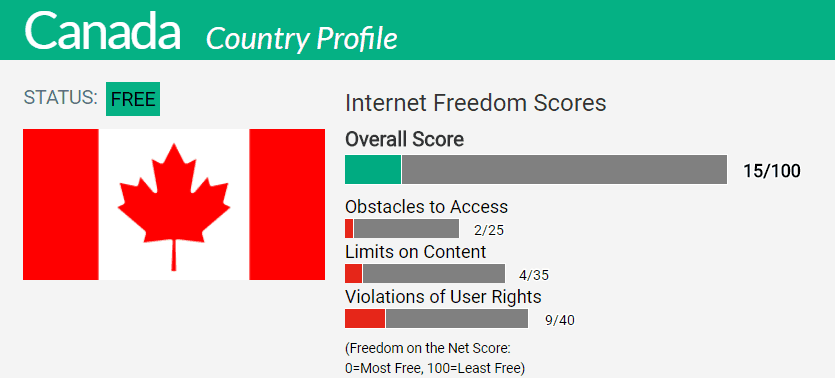
We think NordVPN offers the safest VPN service on the market today. The level of safety comes down to a few key attributes. Every VPN has positives and negatives when it comes to safety, but most of the reputable ones cover all of these bases.
Logging – A connection log is a record of incoming and outgoing connections to VPN server.
This includes:
- ☑️ IP address
- ☑️ IP address of the VPN server
- ☑️ Timestamps for connections and disconnections
- ☑️ The ability for a VPN provider to search and query this information
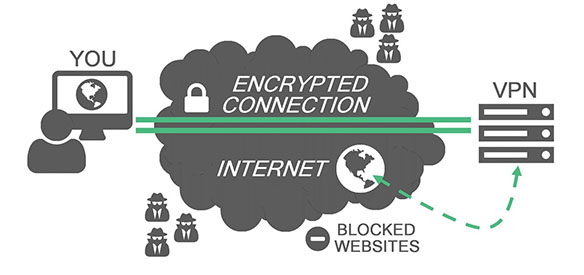
A log basically makes it possible for someone to track your internet activity. This is something you do not want.
How Do VPN Protocols Work?
Protocol – The protocol of a VPN is basically the process of which data is communicated from one network to another. There are various protocols used today and the most safe protocols are the following:
- ☑️ Internet Protocol Security (IPSec)
- ☑️ Layer 2 Tunneling Protocol (L2TP)
- ☑️ Point-to-Point Tunneling Protocol (PPTP)
- ☑️ Secure Sockets Layer (SSL)
- ☑️ Transport Layer Security (TLS)
- ☑️ OpenVPN
- ☑️ Secure Shell (SSH)
Servers – The higher number of servers spread out across the world makes it more likely you will be able to use a closer server, increasing speed.
Jurisdiction – The country that the VPN legally resides in can make a large impact on who has access to a company’s information.
Do VPNs Leak Data?
Data Leaks – An IP leak is when the user’s real IP address is being shown in a network unknowingly while using a VPN. This is bad as it will give up your true identity.
In all of our tests to find the best VPN in Canada, Canada Nord has performed well both by our standards as well as third party security reviews.
What are the benefits of using a VPN?
The benefit of using a VPN is you’re able to securely surf the web without fear of having your identity or personal details be stolen.
A Virtual Private Network (VPN) may sound complicated, but the idea is pretty simple.
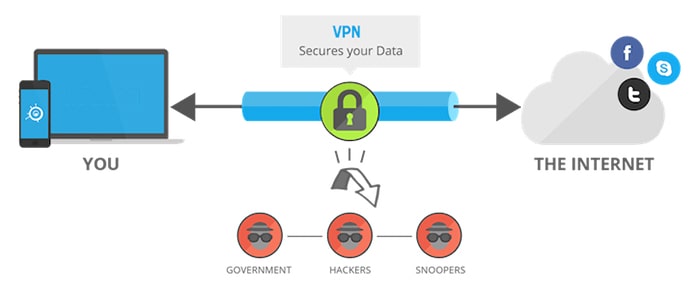
A VPN is a service that creates a virtual tunnel of encrypted data flowing between the user (that’s you) and the server (that’s the internet).
The bottom line is a VPN hides your information from spies, hackers, snoops, and anyone else who might want to steal and monetize your information. Online privacy is a must and a VPN is the best way to incorporate privacy into your virtual world.
Other benefits include access to streaming content in other countries and hiding activity from government agencies.
Which free VPN is best?
You might notice that none of our recommended VPNs above are free. There is a simple reason for this:
One of the first things you’ll be faced with when you search for a VPN service is the proliferation of free options. You’ll be tempted, but please don’t fall for the bait.
No business can exist without income. Free VPNs don’t charge anything to use their service, but you can bet they are collecting your browsing history and selling it to third party advertisers who will then proceed to drive you crazy with ads.
And that’s not even the worst news. Every VPN has the capability to harvest your personal and financial data and sell it on the Dark Web. That’s an even bigger temptation (or maybe even a goal) for companies that make nothing providing a service.
The best advice: you get what you pay for. Don’t get a free VPN. Trust us, you’ll regret it later.
Why We Don’t Do Free (and Neither Should You)
One of the first things you’ll be faced with when you search for a VPN service is the proliferation of free options. You’ll be tempted, but please don’t fall for the bait.
No business can exist without income. Free VPNs don’t charge anything to use their service, but you can bet they are collecting your browsing history and selling it to third party advertisers who will then proceed to drive you crazy with ads.
And that’s not even the worst news. Every VPN has the capability to harvest your personal and financial data and sell it on the Dark Web. That’s an even bigger temptation (or maybe even a goal) for companies that make nothing providing a service.
The best advice: you get what you pay for. Don’t get a free VPN. Trust us, you’ll regret it later.
Is It Legal to Use a VPN in Canada?
Using a VPN is legal in Canada. Many security experts recommend using one to maintain online anonymity. It is 100% legal to use a VPN in Canada.
Canada is obviously an amazing country with the best people around but online privacy is not spared here. There are many aspects of data privacy in Canada that people need to worry about. Using a VPN in Canada is one of them and a smart decision that will keep your privacy intact.
What Is the Best VPN in Canada for Streaming?
ExpressVPN has the best service for streaming. This is because of their awesome lineup of apps for all types of devices. This can be used on tablets, computers, and phones – as well as android TV streamers.
You will be able to successfully stream Netflix from other countries and even use services like Kodi.
If you do end up with a Netflix proxy error there are a few steps to fix that here.
What Is the Best VPN in Canada for Torrenting?
When utilizing P2P downloads and torrenting it’s extremely important to maintain high speeds and keep the high security standards.
With being in the British Virgin Islands, ExpressVPN makes sure no governments are snooping on you as they maintain a no logs policy.
Secure applications allow easy access to torrenting while making sure speeds stay fast while maintaining security. You’ll still want to make sure you use the top safe torrenting sites even when using a VPN.
What Is the Best VPN in Canada for Netflix?
Only a certain number of VPNs allow you to get past the geo-restrictions of Netflix. Luckily, ExpressVPN and NordVPN both allow you to bypass this restriction.
What Devices Work With a VPN?
Most VPNs allow use on Windows, MacOS, iOS, Android, and Linux.
The added bonus is when you can set up a VPN on a router, smart TV, game console, or TV box.
A lot of VPNs allow this and are a fantastic value add.
Can I Setup a VPN on My Router?
Yes, setting up a VPN on a router secures your entire connection. This also means you can have an unlimited amount of devices throughout your home.
There is a little more heavy lifting with this as you will need to go through some extra steps. We have a guide on this matter that makes it easy.
How Much Does a VPN Cost?
In general, you should look to pay between $3 and $8 a month. Any more than that is a little steep, and much less might indicate a poor service.
The best advice is to check if your chosen VPN offers a free trial period: many of the best do. You can then try out their service at no cost.
Encryption Protocols Explained
A VPN protocol determines how your data gets routed between your machine and the server. Different protocols have different costs and benefits depending on what you need.
For example, some prioritize privacy and security, while others prioritize speed.
Here’s a quick overview of the five most commonly-used encryption protocols. There are more available, but you won’t see them very often. These are a quick breakdown of the protocols that our best Canadian VPNs utilize.
OpenVPN
OpenVPN utilizes ultra-strong AES-256 bit key encryption, a 160-bit SHA1 hash algorithm, and 2048-bit RSA authentication. As you can imagine, this provides near-unbreakable security.
The downside is that you get relatively low speeds. Because OpenVPN is an open-source algorithm, developers can view and modify the underlying code. As a result, some services use slightly modified versions.

PPTP
PPTP stands for “Point-to-Point Tunneling Protocol). It was first developed by Microsoft in the mid-90s, and is one of the original VPN protocols still used today.
It was first developed for old-school dialup connections, and is exceptionally fast on a high-speed connection.
The downside is that the encryption is very basic, and has long since been cracked. Most VPN services now utilize a more secure protocol, but you’ll still see PPTP from time to time.
SSTP
Secure Socket Tunneling Protocol (SSTP) has been Microsoft’s standard encryption protocol since Windows Vista SP 1.
SSTP is a more secure version of PPTP, with 2048-bit SSL certificates and AES-256 bit encryption keys. It’s virtually unbreakable, but it’s proprietary to Microsoft, so third-party developers can’t make their own changes or improvements.
L2TP/IPSec
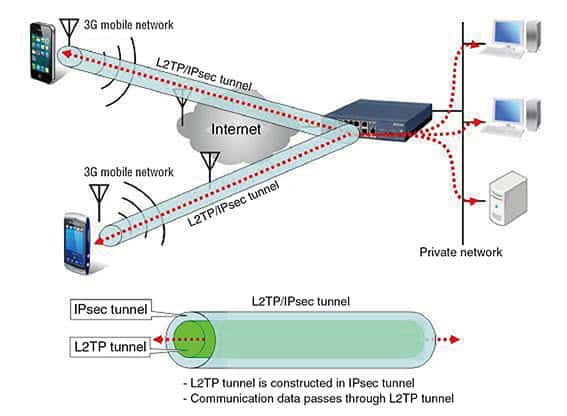
L2TP is short for “Layer 2 Tunnel Protocol”, and is an unsecured version of PPTP. For security, it’s generally paired with IPSec.
The combination of these two protocols is both fast and secure.
Unfortunately, it relies on a single UDP port. As a result, it can be easily blocked.
IKEv2
Internet Key Exchange version 2 (IKEv2) is similar to L2TP in most respects. Like L2TP, IKEv2 is also frequently paired with IPSec for security. It’s open source, and it easily re-establishes after a connection loss.
It’s also great at switching from one network type to another. Because of this, it’s often used for mobile VPN apps, which have to switch back and forth between WiFi and cellular connections.
SSL/TSL
SSL is short for “Secure Socket Layer”, and is commonly used on many ecommerce websites to secure the connection. Many VPNs in Canada pair this technology with TLS, or “Transport Layer Security”.
The reason for this is that it’s an alternative to IPsec, which can come into conflict with many firewalls.
TSL works by creating a secure connection through symmetric cryptography. In this cryptographic method, a unique key is created for each connection session.
Before the connection is even made, the client and the server engage in what’s called a TLS handshake, where they agree on an encryption algorithm and cryptographic key beforehand.
Because the algorithm is randomized, an eavesdropper or man-in-the-middle attacker will have a hard time intercepting any data.
DTLS
Datagram Transport Layer Security, or DTLS, is another popular encryption protocol in VPNs for Canadians. It’s primarily used to speed up SSL/TLS tunneling issues in TCP, which can sometime lead to low speeds.
DTLS works similarly to TLS security, but is specialized for datagram-based applications such as streaming services. It provides similar security to SSL/TLS, but it doesn’t have to scramble the semantics of the underlying data. That said, it can be easily blocked, since it uses UDP rather than TCP.
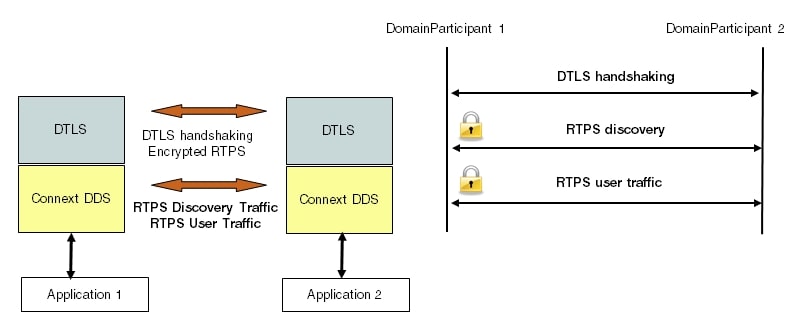
VPN Routing & Devices
So, how does your data get routed through the VPN? Here’s a quick overview.
Provider-provisioned VPN building-blocks
In this routing method, the VPN data is routed through either Layer 2 or Layer 3. Because the routing can switch from one layer to another via multi-protocol label switching (MLPS), the identity of the VPN signal is masked.
PE Devices
A PE (Provider Edge) device is a single device, or multiple devices, at the edge of the provider’s network. This device then connects through Consumer Edge (CE) devices. In this type of VPN, Canada-based users can view a website, while the provider device is only aware of the VPN device.
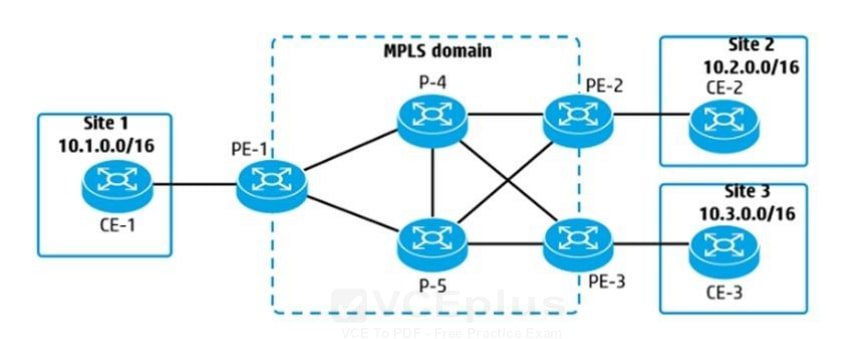
P Devices
A Provider (P) device is similar to a PE device, but it’s located inside the provider’s core network, rather than just on the edge. It also doesn’t have any direct interface with the consumer device.
A P routing protocol is generally used in conjunction with PE devices to route your data through the network. When used together, this system is called a PPVPN. This supports rapid, efficient P2P connections.
C Devices
Consumer (C) devices are located within a customer’s network, not on the edge. These devices are not aware that the VPN exists. One example would be a smart TV connected to a phone that’s streaming data from the VPN. In this example, the phone is aware of the VPN, but the TV is not.
CE Devices
Consumer Edge (CE) devices are on the edge of the consumer’s network, and are directly connected to the PPVPN. In the example above, the smartphone would be a CE device.
User-Visible PPVPN Services
So, what does a PPVPN offer? Here are a few features that a user can actually take advantage of:
OSI Layer 2 Services
VLAN
A Virtual LAN (VLAN) allows for multiple LANs to connect through the same trunk using the IEEE 802.1Q protocol. This is the latest trunking protocol, and operates on Layer 2 for enhanced security.
BGP/MPLS PPVPN
A Virtual Private LAN Service (VPLS) is similar to a VLAN. However, using OSI Layer 1, it allows for emulation of point-to-point and point-to-multipoint topologies. This allows you to use Layer 2 technologies over Layer 1 connections like Metro Ethernet.
As a result, users can connect multiple LANs over an optical, packet-switched provider core. When this is done, multiple remote LAN segments will emulate a single LAN.
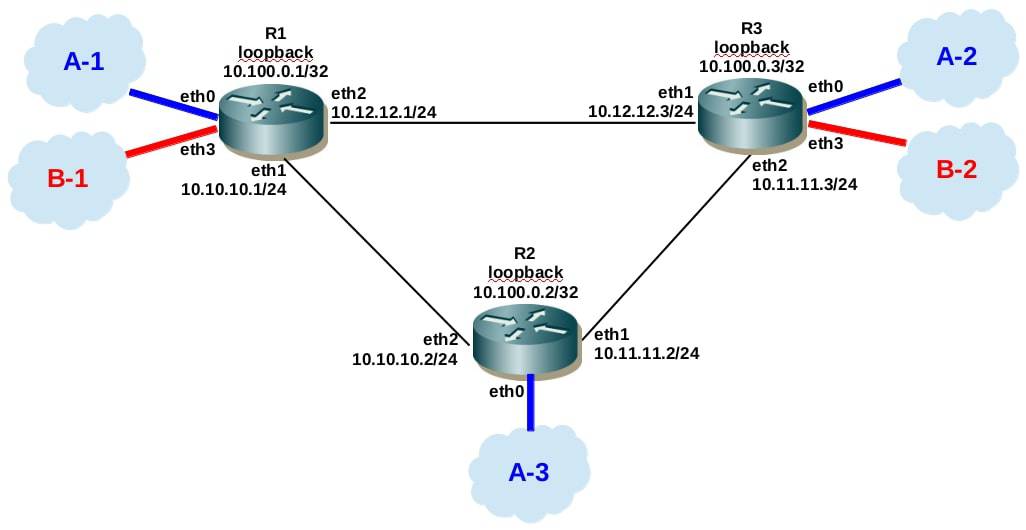
EtherIP
Ehternet Over IP Tunneling (EtherIP) is part of the FreeBSD network stack, and does not offer any security. However, it offers packet encapsulation over a fast connection.
IPLS
IP-Only LAN-Like Service (IPLS) is similar to VPLS. However, it utilizes Layer 3 capabilities to transmit data via IPv4 or IPv6 as packets instead of as frames.
PW
Pseudo Wire (PW) is also similar to VPLS, but can use different Layer 2 protocols at both ends of the connection. This allows you to use WAN protocols like Frame Relay or Asynchronous Transfer Mode.
OSI Layer 3 PPVPN Services
There are two different types of PPVPNs, one in which the PE device functions as a single router, and another where the PE device creates a single virtual router for each VPN. There’s also a less secure, unencrypted model. Let’s take a look at each of these methods:
BGP/MPLS PPVPN
In a BGP/MPLS network, BGP extensions route data through the IPv4 VPN address family. These routes are indicated by 12-byte strings, with the first 8 bytes representing a route distinguisher, and the last 4 bytes representing the IPv4 address.
The VPN topology is tracked by PE devices, which are connected either via MPLS tunnels or via P routers. If a P router is used, it remains unaware of the VPN.
Virtual Router PPVPN
A virtual router network utilizes BGP connections, but does not require any modification of existing protocols. Instead, the network uses logically independent routing domains. This means that the MPLS tunnels can distinguish different PPVPNs without the need for a 12-byte identifier.
Unencrypted Tunnels
In some VPNs, no encrypted tunneling protocol is provided. These types of networks simply use Generic Routing Encapsulation (GRE).
This can still anonymize your connection, but leaves the VPN itself vulnerable to intrusion. Use of L2TP, IPsec, and MPPE, or PPTP can help alleviate this issue.
Public vs. Private Keys
A VPN service uses two different types of encryption keys: public and private. The public key is used to send an encrypted message, and is known to every server and client on the network. A private key is known used to de-encrypt the message, and is known only to your machine and the server.
Encryption keys are measured in bits (1’s and 0’s), and come in various lengths. The most common encryption method is 128-bit. However, some more secure systems now use 256-bit encryption. 128-bit encryption can be broken, but only with great difficulty.
At this time, no-one has been known to break 256-bit encryption.
How is a VPN Different From a Proxy Server?
A proxy server is similar to a VPN server in that it serves as a relay between your machine and the service you’re accessing.
The difference is that while a VPN server anonymizes all traffic to and from your machine, a proxy server is application-specific. Proxy servers also don’t encrypt your traffic, which can leave you open to intrusion.
There are three common types of proxy servers. Here’s a quick look at each of them.
HTTP Proxies
HTTP proxies are used specifically for websites. You configure your browser for a specific proxy, and all traffic gets routed through it. They’re not useful for torrenting, but they can be used to access geo-restricted content on most websites.
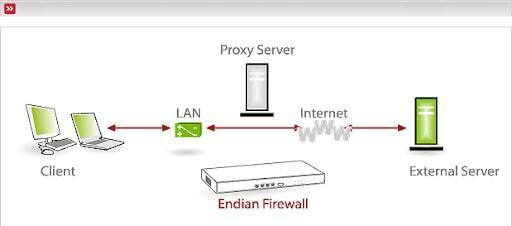
SOCKS Proxies
SOCKS proxies can be used for a variety of traffic. They can be used for gaming, streaming, torrenting, or P2P file sharing, although they still have to be configured at the application level. Because they handle larger volumes of traffic, they’re typically slower than HTTP proxies.
Transparent proxies
Transparent proxies aren’t typically used by consumers. They’re generally used by businesses, in order to monitor usage and block certain content. They’re also frequently used on public WiFi networks in order to authenticate users.
A Final Word On Our VPN Reviews
At the risk of boring you, let me repeat: you’re crazy if you’re not using a VPN in Canada in 2022.
Too many people in this country still access the internet through a plain, old provider. Here’s why this is a bad idea. Today’s hackers are a sophisticated lot, and penetrating your online devices is child’s play for them unless you use encryption.
While the common perception might be that they tend to focus their energy at governments and corporations, that’s a dangerous assumption to make.
Personal information of ANY sort is valuable currency on the Dark Web. Anyone, anywhere, at any time, is fair game.
So whatever you do, do it safely.



